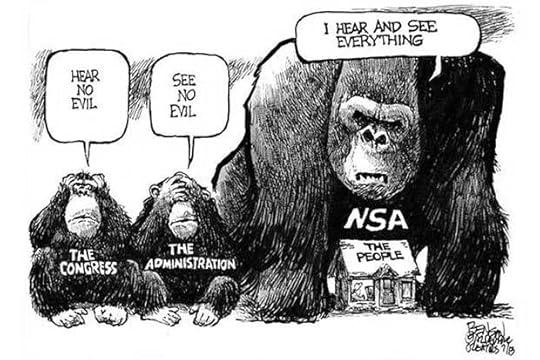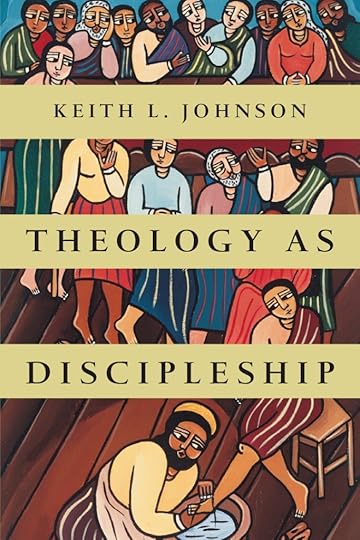Randal Rauser's Blog, page 166
November 18, 2015
The real scandal over Starbucks cups
 These days I rarely go to Starbucks. But I can’t help commenting on the latest installment in the interminable and patently ridiculous “war on Christmas”. I speak, as you can probably guess, of the “controversy” that has arisen over Starbucks’ decision to serve its coffee in plain red cups this holiday season. Personally, I haven’t met any Christian who is offended by Starbucks’ decision but I know they must be out there because the debate apparently exists.
These days I rarely go to Starbucks. But I can’t help commenting on the latest installment in the interminable and patently ridiculous “war on Christmas”. I speak, as you can probably guess, of the “controversy” that has arisen over Starbucks’ decision to serve its coffee in plain red cups this holiday season. Personally, I haven’t met any Christian who is offended by Starbucks’ decision but I know they must be out there because the debate apparently exists.
If atheists are ridiculous when they complain about calls to “Pray for Paris” in the wake of a terrorist attack, Christians are (if anything) even more ridiculous when they complain about plain, red cups at Christmas time.
Think about it. Had Starbucks added a motif of falling snowflakes or mistletoe, the protesters would have been silent. After all, they’re not demanding a crèche on the cup. (If anything, that would be even more absurd.) They just want to see some sort of holiday motif, and a snowflake or mistletoe pattern would suffice.
Think about that: some Christians are protesting Starbucks’ decision not to emblazon snowflakes or mistletoe on their cups. Yes, it is that ridiculous.
That’s not to say there isn’t a scandal with Starbucks and their coffee cups. Indeed, there is.
Recently, the Canadian investigative journalism program Marketplace investigated Starbucks’ claims to recycle their disposable cups. It turns out those claims are garbage. Moreover, Starbucks knew that their cups were not being recycled. In short, they deceived the public.
Starbucks pretended they were green, but they lied. And that leaves me seeing red.
November 17, 2015
Hell and Holiness
Last year I wrote an article titled “Hell, right doctrine, and right character” in which I explored the link between the formulation of right doctrine and the process of sanctification. The idea, in short, is this: correct doctrine ought to encourage the process of sanctification (aka becoming Christlike). Thus, if acceptance of a particular doctrine tends to undermine the process of sanctification, that fact counts against the truth of the doctrine in question.
Yesterday the blog “Unfundamentalist Christians” published a rewritten version of the article under the title: “How the Traditional Doctrine of Hell Undermines Christian Character“.
November 16, 2015
How absurd is atheist offense at calls to Pray For Paris? Very.
 This article serves as an addendum to my article “Why atheists shouldn’t object to the call to ‘Pray for Paris’.” In this case I will offer a simple illustration to demonstrate just how absurd it is for atheists to take offense at (or offer criticisms of) calls to pray for Paris in the wake of this most recent moral atrocity.
This article serves as an addendum to my article “Why atheists shouldn’t object to the call to ‘Pray for Paris’.” In this case I will offer a simple illustration to demonstrate just how absurd it is for atheists to take offense at (or offer criticisms of) calls to pray for Paris in the wake of this most recent moral atrocity.
Let’s begin again with the image I included in my previous post, a French flag which was displayed on Amazon.com to express solidarity with the French people. Wouldn’t it be absurd for somebody to complain about this image?
Enter the anarchist who advocates for the abolition of nation states and the rise of post-national stateless societies consisting of free associations. Imagine that this anarchist protests Amazon.com’s image and all other demonstrations of solidarity that draw upon flags and other nationalist or state-based symbols. The anarchist then proceeds to launch into a defense of his anti-government, pro-anarchist views.
How would you react to this anarchist? If you’re like me, you’d concede that the issues he raises are interesting and worth discussing. But you’d also insist that this is not the time or the place to dredge up the perennial debates between anarchists and non-anarchists. Indeed, his dogged persistence in pontificating in reaction to a simple image intended to express solidarity would appear churlish and insensitive.
Whether it’s an anarchist protesting a well-intentioned flag of solidarity or an atheist protesting a well-intentioned prayer of solidarity, both responses sadly bypass big tent inclusivity in favor of small minded sectarianism.
November 15, 2015
Why atheists shouldn’t object to the call to “Pray for Paris”

The call for solidarity with the French people on Amazon.com’s homepage.
In the last two days the entire western world has been reeling from the horrific terrorist attacks on Paris.
In response, twitter has seen hashtags like #PrayForParis and #Prayers4Paris trending as people far and wide join hands to stand in solidarity with the French people (even if “standing in solidarity” often consists of little more than a retweet).
Not surprisingly, the last two days have also seen several atheists take the opportunity to write critiques of the call to pray for Paris. For example, Jonathan MS Pearce (the “Tippling Philosopher”) expresses his sentiment in the article “Pray for Paris…? Seriously? Think about it!” Jonathan then proceeds to present two arguments against the causal power and value of prayer.
In this article I’m not going to critique Jonathan’s arguments, not least because I’ve addressed these types of issues in the past. (See, for example, my article “God’s meticulous providence and the prevention of evil.“) Even more importantly, there is a voluminous and highly technical literature discussing these issues. Neither Jonathan nor myself is going to provide the last word on this ongoing discussion.
Instead, I want to point out that the tactic of targeting calls to pray for Paris strikes me as unwise and counterproductive. The reason is because it involves the opportunistic insertion of partisan analysis when communal solidarity is required.
To begin with, I frankly find it quite distasteful when folks use the immediate wake of a crisis event or a moral horror in order to further their religions or irreligious agenda. And this applies to Christians as much as atheists.
For example, ten months ago Paris was reeling from another heinous terrorist act. At the time, people around the world tweeted #JeSuisCharlie in support of free thought and the freedom of the press. Imagine if, a mere day or two after the Charlie Hebdo shooting, a Christian apologist had written an article insisting that atheists should not tweet #JeSuisCharlie because they allegedly lack a basis for objective morality, including the very values they profess in support of the press and free thought.
That action would strike as being in extremely poor taste, a regrettable instance of an apologist attempting to insert a partisan analysis into a crisis moment where we need mutual support and comfort. In like manner, when I see atheistic apologists inserting their partisan analysis into the present crisis moment, I have an equally negative reaction.
And this leads me to the core issue. At times like these, we need to join together as a human community in order to reassert the common values which we share. And one way we express communal solidarity is through our particular cultural and intellectual backgrounds. Thus, those of us who are religious will express solidarity and support by calling for folks to “Pray for Paris”. Others will express solidarity and support by calling for “Peace for Paris” or declaring “I stand with Paris.” The expressions of solidarity may differ in reflection of different belief systems and cultural backgrounds, but the commitment to tolerance and the open society remains the same.
Thus, while we have different belief systems, this is not the time for us to snipe at the way others express the sentiment of solidarity: “Prayer doesn’t work!” “Atheism can’t promise peace!” “Why would you stand with Paris?!” Instead, this is the time to extend charity to others as we focus on those things that unite us.
Atheists may not all agree on the value of prayer. But that’s not really the point. It should be enough for them to agree with the underlying spirit of solidarity and compassion to which such imperatives call us all.
November 13, 2015
Atheist Arguments and Uncritical Anthropomorphism
A couple days ago Justin Schieber tweeted the following sentiment:
“A lack of privacy in principle surely has some weight in the question of whether we should want God to exist.”
The great thing about a pithy tweet like this is that it succinctly summarizes a very common objection to God’s existence. Apparently there is some value in communication in 140 characters or less.
Since I hear this kind of objection to God’s existence quite often, I decided to take some time to tease out a couple replies.
In my first response to this tweet I pointed out that one reason for desiring “privacy” is because of a legitimate concern that the agency observing our actions could use that information maliciously. We all have legitimate concerns about “Big Brother” impinging on our privacy, for example. But that objection does not apply when the agent in question is a maximally good, wise, and benevolent divine being, and thus this concern cannot be a factor in the present case.
And this brings me to my second response. In this article I intend to focus on a different issue altogether: namely, the uncritical anthropomorphism that commonly under-girds this “privacy” objection.
The Problem of Uncritical Anthropomorphism
First off, let’s be clear on definitions. “Anthropomorphism” involves the attribution of human characteristics to a non-human entity, e.g. an animal, an object, or as in this case, God. (The word originates from two Greek words: Anthropos (human) and morphe (form).) Anthropomorphism is uncritical when the person invoking anthropomorphic categories is unaware that they are unwittingly projecting human characteristics onto a non-human entity.
Language about God is inescapably anthropomorphic, so it would be foolish to attempt to excise all such language from theological discourse. The key is not to remove anthropomorphic language, but rather to become aware of the extent to which such language is indeed anthropomorphic.
Unfortunately, people frequently lapse into uncritical anthropomorphism, particularly in theological discourse. For instance, on Sunday morning the pastor will say “Lord, come into this place.” In my experience, a significant portion of the congregation (and perhaps the pastor himself) will uncritically assume that language literally conveys an appeal to God to move from one place in space to another. But that seemingly simple appeal assumes in turn that (1) God is located in space, (2) God can move through space, (3) God is in time. The problem is that (1) and (2) are rejected by virtually all Christian theologians while (3) has been rejected by a majority of theologians. So whatever sense there might be in appealing to God to “come into this place”, the language does not and cannot function as a direct appeal to God to enter the building analogous to asking a human person to enter the building.
Or think about one person telling their grieving friend, “God weeps with you.” As comfort words, this is just fine. But it most certainly isn’t literal. For starters, God is a non-physical being who is bereft of tear ducts. But that isn’t the half of it. Even more basically, a majority of Christian theologians throughout history have denied that God experiences any change of emotion. This doctrine is called divine impassibility and it derives from the doctrine of divine atemporality (if God is outside time, as noted above, then God cannot undergo any sequential changes, including change of emotional state). Impassibility also follows from the concept of God as Pure Act or Prime Mover (a concept to which we’ll return below).
But even if one believes God is temporal, God’s experience of human loss is unimaginably different than our experience of that same loss. For example, God allowed that loss, he had reasons to allow that loss, and he has full knowledge of the final state of all things toward which he is guiding human history and in which this particular loss plays some providential role. So even if you think God is passible (an increasingly popular view), that does not mean that we can assume we have any clue what it means experientially for God to suffer with his human creatures who suffer.
To reiterate, I have no problem with the pastor saying “Lord, come into this place” or with the friend offering words of comfort: “God weeps with you.” But it is important that we be aware of the extent to which such language is anthropomorphic.
Atheists, uncritical anthropomorphism, and privacy
Given that lay Christians frequently lack critical reflection on the extent to which language about God is anthropomorphic, it is no surprise that atheists who are keen to offer critiques of Christian theism likewise frequently launch their critiques based on an uncritical anthropomorphism. And the language of privacy is a great example.
Christopher Hitchens used to delight in comparing life in a universe with God as akin to living in a “celestial North Korea”. In my first installment critiquing the privacy objection, I pointed out the disanalogy between a malevolent government agency and a benevolent and wise God.
But there is another problem with Hitchens’ illustration. His comparison of God to some human observer in the world reflects the same kind of uncritical anthropomorphism that one finds in the cases noted above. Hitchens clearly envisions God as acting something like a peeping tom or intrusive eavesdropper, i.e. as a discrete agent in some particular place in the world who observes our actions and thereby invades our privacy.
In my experience this uncritical anthropomorphism is woven into the DNA of the privacy objection. For example, take the case of Counter Apologist who tweeted his agreement with Schieber’s tweet by noting that he wouldn’t want anybody “perceiving” what he does all the time, for that would constitute an unacceptable violation of his “privacy”.
Like Hitchens, Counter Apologist appears to be assuming that God functions as a discrete agent in the world who observes our actions and thereby invades our privacy. But that’s not what Christian theologians mean.
Divine Omniscience
Since the offending divine attribute in this case is omniscience, we should ask what it means for God to be omniscient. As with any other knowledge discourse, there is disagreement among experts in the field regarding how to cash out particular concepts. As I noted above, in academic theology there is disagreement and debate over various divine attributes. But one thing is clear: the concept of God invading our privacy as a discrete observer of our behavior in the world bears no relation to any of those concepts.
In order to see how great the gap is, I will close by considering one mainstream view of divine omniscience. So let’s take a look at the Westminster Confession and its description of divine omniscience. The picture here is informed by the Aristotelian concept of God as Pure Act and Prime Mover, i.e. God as the one that acts on all things but is not acted on by anything. The Confession declares:
“In his sight all things are open and manifest; his knowledge is infinite, infallible, and independent upon the creature; so as nothing is to him contingent or uncertain.”
Note first that God’s knowledge is not acquired over time by discretely observing unfolding events and states of affairs in the world. That is, this picture bears no relation to the anthropomorphic picture that generates the privacy concerns. Instead, God’s knowledge is eternal, infinite, and infallible.
Perhaps even more importantly, God’s knowledge is independent upon the creature. In other words, God’s knowledge is not in any sense contingent on created things themselves. For God’s knowledge to be contingent upon creation would constitute a violation of God as Pure Act and Prime Mover. Instead, God’s knowledge of all facts pertaining to creation consists of his awareness of his own decree which secures that all events and states of affairs contained in that decree will obtain.
One could certainly have substantive objections to the concept of God’s knowledge as described in the Westminster Confession. For example, one might object that divine omniscience is conceptually incoherent or one might object that this picture undermines human free will.
But while there are legitimate objections to the prospect of divine knowledge as described, a violation of human privacy is not one of them.
Conclusion
If atheists are only interested in engaging the uncritical anthropomorphic discourse of the pew with their equally uncritical rejoinders, they can have at it. Within that context, objections to God invading our privacy could actually score some points. But if they are interested in engaging in the world of academic theological discourse, they need to set aside uncritical anthropomorphism and heed what Christian theologians actually say about God.
November 10, 2015
Should you hope God doesn’t exist so you can have some privacy? (Part 1)
If I’m ever at a loss for what to talk about, my twitter feed always delivers. Today Justin Schieber tweeted the following:
“A lack of privacy in principle surely has some weight in the question of whether we should want God to exist.”
I have two responses to this tweet. The first response will be published here and the second in a follow up article.
Let’s begin with the concern one often hears about government’s encroachment on our lives. Who wants “Big Brother” monitoring our emails and credit card purchases and recreational activities? Not me!
“But hold on there ‘libertarian Larry’,” the law-and-order government apologist replies, “If you’ve got nothing to hide, you’ve got nothing to fear.”
In other words, the only reason I am uncomfortable about the government monitoring my emails, credit card purchases, and recreational activities, is because I’m saying, purchasing, and doing things I shouldn’t. If, on the other hand, I’ve got nothing to hide, then I’ve got nothing to fear.

Isn’t it comforting knowing the NSA is monitoring your metadata? Er, not exactly.
It’s a nice argument. Or at least it would be if governments were essentially good and wholly benevolent. But of course, governments aren’t essentially good or wholly benevolent.
And that’s why the thought that a shadowy government agency like the NSA is monitoring the communication of the citizenry is the kind of thing that should unsettle American citizens. Who knows how a potentially corrupt or inept government agency might choose to use information against others?
Similarly, if God were neither essentially good nor wholly benevolent then it would likewise by a concern that God is monitoring your metadata (and much else besides!).
But Christians do not understand God to be like a fallible, corruptible government. Rather, they understand God to be essentially good and wholly benevolent. God could not do us wrong, by definition.
By that definition, the law-and-order government apologist’s declaration really does apply: when it comes to God, “If you’ve got nothing to hide, then indeed you’ve got nothing to fear.”
Our problem is that we’ve got a lot to hide.
Consequently, while you might indeed hope God doesn’t exist (i.e. you hope there is no essentially good and benevolent being who is aware of all your thoughts and actions), you would hope this only to the extent that your beliefs and or actions run contrary to that which is essentially good and/or benevolent to others. That is, you’d only hope this to the extent that you’ve got something to hide from an essentially good and wholly benevolent being.
November 9, 2015
76. Keith L. Johnson on Theology as Discipleship


Dr. Keith L. Johnson
Theologian William Placher once made the following observation:
“Several times, introducing me to a church group, a well-meaning person has said, ‘Bill Placher is a theologian, but I think you’ll find what he has to say very interesting.’ That but always worries me, yet it captures something honest about contemporary attitudes to Christian theology.”
I can vouch for Placher here. Over the years I’ve explored many different ways to introduce myself to new people. Through all those cases I’ve discovered that if you really want to put a damper on the conversation, you call yourself a theologian.
 I suppose we could debate all day the multiplicity of forces that led to the cultural marginalization of theology. But what I’m really interested in is the question of how we can bring together the work of the academic theologian with the rhythms of the church and the formation of the individual.
I suppose we could debate all day the multiplicity of forces that led to the cultural marginalization of theology. But what I’m really interested in is the question of how we can bring together the work of the academic theologian with the rhythms of the church and the formation of the individual.
In his new book Theology as Discipleship Dr. Keith L. Johnson seeks to provide an introduction to the discipline of theology which can overcome this regrettable division.
Dr. Johnson has his PhD from Princeton Theological Seminary and is Associate Professor of Theology at Wheaton College. He is the author and editor of several books, and in this interview I sat down with Dr. Johnson to explore the challenge of bringing together the mind and the heart, the academy and the church, as we seek to understand theology as discipleship.
You can purchase Theology as Discipleship here.
November 8, 2015
Everyone’s Daughter: A Review of India’s Daughter
 On the evening of December 16th, 2012, 23 year old Jyoti Singh, a young medical intern, went out with a male friend to celebrate the completion of her final exams. The two went out into Delhi and watched the film Life of Pi. On the way home they made the fateful mistake of boarding an off-duty charter bus, one that happened to have six young male friends — including the driver.
On the evening of December 16th, 2012, 23 year old Jyoti Singh, a young medical intern, went out with a male friend to celebrate the completion of her final exams. The two went out into Delhi and watched the film Life of Pi. On the way home they made the fateful mistake of boarding an off-duty charter bus, one that happened to have six young male friends — including the driver.
The ensuing horror defies one’s darkest imagination. As the driver roamed the streets, Jyoti was repeatedly raped by the five young men (including one minor). But raping her wasn’t enough. As the driver recalls, they soon decided to employ the services of a metal rod, “mainly to teach them a lesson”. The driver adds: “Someone put his hand inside her and pulled out something long. It was her intestines.” And just to be clear, the driver makes sure we know that it’s Jyoti’s fault: “She should just be silent and allow the rape.”
When they were finished 1 1/2 hours later, the rapists threw Jyoti and her friend from the moving bus like pieces of trash. Jyoti later succumbed to the catastrophic trauma.
The driver recounts these unimaginably evil crimes with an infuriatingly flat emotional affect — the kind that makes you want to bash his head in … if only to see some sign of emotion. (Of course, that’s only one of the many reasons you want to bash his head in.) But there is some emotion if you look closely. It’s moral indignation and irritation. The message is undeniable: Jyoti and her consort got what was coming to them. And the driver and his friends have been unfairly singled out in an arbitrary witch hunt.
Is the driver a psychopath? I wish it were that simple. The far more disturbing prospect is that the driver is simply the product of a horrifyingly misogynistic culture, one which believes that the woman’s place is in the home, and that the “weaker sex” is consigned to endure a liminal existence in a dangerous, male-dominated world.
Incredibly, in his interview the defense attorney arguably exceeds even the driver in his offense. He boldly blames Jyoti for the crime. What is a young lady doing travelling out after 6:30 pm with a man who is not her family member? he asks with a nauseating moral superiority. He adds that a woman is like a diamond: if you leave a diamond in the street then the dogs will get it. To cap it off, he adds with a condescending smirk: “We have the best culture. In our culture there is no place for a woman.”
Jyoti Singh is a moral hero like Malala Yousafzai. She worked tirelessly to realize her dream of becoming a doctor. And she was compassionate. When a young boy stole from her, she pleaded with the police to give him mercy. And then in a scene reminiscent of the moment in Les Misérables where Bienvenu wins Jean Valjean’s honesty with the gift of silver, Jyoti offers to buy her young thief what he wanted if he would promise to do right.
Jyoti’s parents proudly recall how, to the puzzlement of their neighbors and family members, they had celebrated Jyoti’s birth as if she were a boy. Now that she is gone her father recounts his pain in one of the film’s many moving scenes:
“For a father who once upon a time who let his baby girl sleep over him, who held her in his arms and played with her, who held her finger and taught her to walk, to have set fire to that daughter during creation by his very hands. This is very difficult. The most difficult. When I remember this moment, I’m unable to speak. Words just don’t come out.”
The filmmakers titled their powerful documentary India’s Daughter. The title is somewhat ironic given that the Indian government banned the film given its “negative” portrayal of Indian society. But Jyoti isn’t simply India’s daughter, she’s everyone’s daughter. And the challenge to combat misogyny and patriarchy belongs not merely to India but to us all.
November 6, 2015
Meticulous Providence, Open Theism, and Twittery: A response to Greg Boyd
 The other day I came across this tweet by Greg Boyd (courtesy of a Justin Brierley retweet). The tweet consists of an advertising graphic for the upcoming film God’s Not Dead 2 accompanied with Boyd’s wry twittery.
The other day I came across this tweet by Greg Boyd (courtesy of a Justin Brierley retweet). The tweet consists of an advertising graphic for the upcoming film God’s Not Dead 2 accompanied with Boyd’s wry twittery.
What’s “twittery”, you ask? I coined the term to refer to the following:
twittery. n. “pithy statements which make up in sheer tweetability what they lack in nuance and charity.”
Twittery can be fun, kind of like “shootin’ the bull” with your friends. But it has a high cost, for twittery consists of cheap shots at the beliefs and/or practices of others. (Remember when your mom warned you: “Don’t build yourself up by tearing others down.” Twittery would be indicted under your mom’s advice.)
But before we get to Boyd’s twittery, let me be clear on the object of his critique. The proximate target may be God’s Not Dead 2. But the film’s status as proximate target is incidental and so we can set it aside.
My interest is in the immediate target, namely the doctrine of meticulous providence, i.e. the doctrine that God sovereignly oversees and foreordains all particular events for his own purposes. In short, God’s providence is not simply a general allowance of events, but also extends to a specific willing of particular events. The advertisement clearly assumes meticulous providence:
“My life may not be going the way I planned it, but it is going exactly the way God planned it.”
As an open theist, Boyd is no friend of meticulous providence. And he uses this tweet to state his rejection of the doctrine. The occasion is presumably the mass shooting at Umpqua Community College which had occurred a day before he posted his tweet. And so, Boyd responds to the claim that one’s life is going as God planned it with the quip:
“Yeh, tell that to those who lost loved ones in yesterday’s massacre.”
So why do I consider this tweet an instance of twittery? It certainly is pithy. But what about lacking charity and nuance?
Well, let’s think about this. We can all agree that it would be wrong to tell a person who had just suffered a tragic loss that this was part of God’s meticulous providence. But here’s the big question: does it follow that the inappropriateness of this response calls meticulous providence into question? Boyd appears to think so.
But that seems to me clearly false. On the contrary, all that follows is that we must share with others that which we believe to be true with pastoral sensitivity (or, if you prefer, emotional intelligence).
Imagine, for example, that your best friend’s son gets in a car accident. Because he is not wearing his seatbelt, the young man flies through the windshield and into oncoming traffic where he is killed. When you arrive at the hospital to comfort your grieving friend, would it be appropriate to say “Seatbelts save lives”? (Um, no.) Would it follow that one ought to question the maxim that seatbelts save lives? (Um, no.)
Now let’s consider for a moment Boyd’s own theology of providence. On Boyd’s open theist view, God may not know the future actions of libertarian free creatures, but God nonetheless anticipates the intentions of would-be mass murderers as they plan and gradually carry out their massacres. And yet, God chooses not to intervene to prevent those atrocities.
Thus, on Boyd’s view of providence, God observed Chris Harper-Mercer planning and carrying out the horrible massacre on that dark day. As the seconds ticked by, God could have prevented Harper-Mercer from acting at any point. For example, God could have tripped Harper-Mercer in the parking lot of the college, leaving him to suffer a concussion and be discovered by campus security officers. Surely the God who brought the universe into existence could have achieved this outcome without even lifting the proverbial pinky. But God chose not to act. Instead, he stood by, observing the unfolding carnage.
Yeah, try telling that to those who lost loved ones in the massacre.
November 5, 2015
Atheism and Christianity: the CHRI FM Interview
Here is a relatively brief (12 minute) interview I recently did with Brock Tozer of CHRI 99.1 Family Radio in Ottawa. Brock’s a very good interviewer and as a result, this interview provides a very good overview of the book’s themes. It’s my third time on CHRI as I previously did interviews with Brock on God or Godless and What on Earth Do We Know About Heaven?




